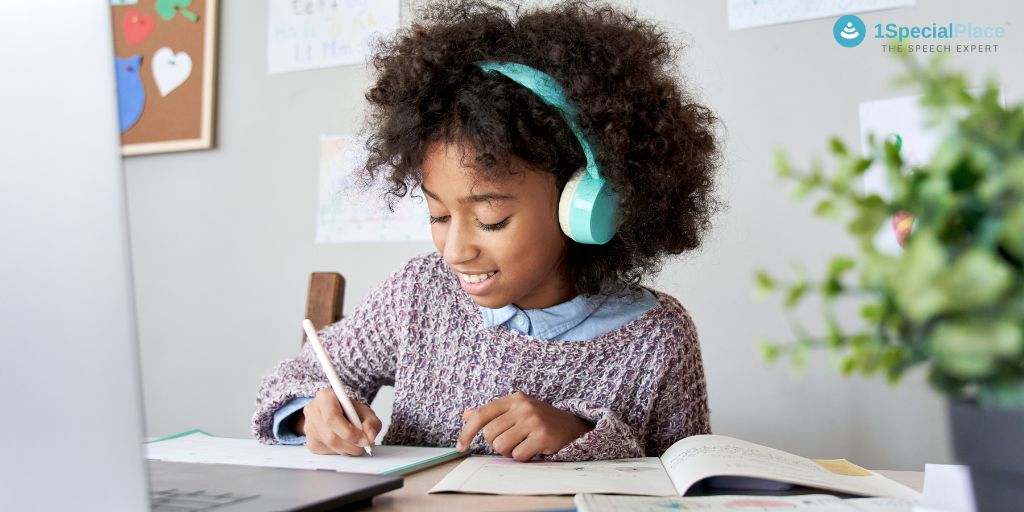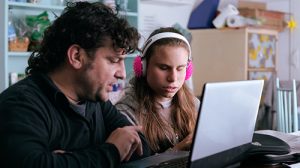
Home-schooling Children with Disabilities during COVID-19
Home-schooling Children with Disabilities during COVID-19
Advantages of home-schooling Covid-19, The current pandemic situation has left schooling systems all over the world in havoc. This has impacted children with disabilities particularly seriously, leaving their parents feeling like they have lost a limb in the absence of physical schools. They worry that their child may lose out on precious resources offered by the schools. Or else, if the school is operating virtually, then they may find that their child is not able to engage and learn quite so effectively via this new mode.
Some families also do not have access to virtual school programs and cannot risk their child’s health by sending them to physical school where they will be exposed to many people over the day.
So, if not a physical school and if not an online school, then what?
Parents do have another possibility: Home-schooling.
Home-schooling is still gaining popularity in India as compared to the West where it is quite common. While there are still no official regulatory bodies specifically for home-schooling, it is definitely legal and there are many resources for parents who are considering it as an option. Home-schooling offers a number of advantages over regular mainstream school, and also some limitations. Parents can weigh up the benefits and drawbacks of these when making a decision.
Some points to consider are:
-
Feasibility:
Home-schooling will take a lot of commitment from parents, as it is up to you to decide syllabus, lesson plans, assessment, and much more, including planning out the time allotted to school along with other services like speech therapy or physiotherapy during the day.
-
Socialisation opportunities:
Many parents worry that their child will miss out on making friends and interacting with peers if they are home-schooled. In today’s situation also, parents will certainly have to carve out time while home-schooling for their children to interact with other children, perhaps via videoconference.
Many cities have parent networks of families who home-school and these can be useful in planning virtual meet-ups or even collaborating for classwork. It is important to note that there is immense benefit in children with disabilities interacting and playing with abled children for both abled as well as disabled children.
-
Flexibility:
One of the biggest advantages of home-schooling, especially for children with disabilities, is the immense amount of flexibility it offers. Rather than attending strict, set hours of pencil-paper learning, children can learn with as many accommodations as they require, at whichever pace is comfortable for them.
-
Academic structure and examinations:
There are no official home-schooling examinations in India, but there is the National Institute of Open Schooling (NIOS) to provide syllabi and course materials, and also to validate home-schooled students’ education at the secondary and higher secondary levels. NIOS offers different levels of exams, A, B, and C, which are equivalent to year-end exams for Class 3, 5, and 7.
These exams can provide some benchmarks for a child undergoing home-schooling. Students may also take Secondary Course and Higher Secondary Course exams at the institute, which are equal to Classes 10 and 12. The subject choice is highly flexible and there are also no age restrictions to take up any of the exams.
Some tips for successful home-schooling
-
Set a Routine:
- While home-schooling offers great flexibility in that the child will not have any external routines imposed on them. It is also essential for families to set a routine tailored for their child, based on the child’s periods of greatest alertness and also accommodating play time and therapy times if needed.
- This will allow the child to get into the correct mind-set to learn each day, since while being at home there is no “transition” period like the journey to school or seeing a teacher’s face.
- It is also important to let the child be aware of the different parts of the daily routine, either via a visual schedule in the child’s sight or a spoken cue to move between different periods of study or play.
- Remember to include some time for the child to have for themselves, and also some time for you as the parent to have for yourself!
-
Join a community:
- ‘Swashishkshan’ is a non-profit initiative that aims to connect home-schooling parents all across India into a large network. They host meet-ups, answer questions, and also post articles relating to home-schooling. Their website can be accessed here. They also have a presence on various forms of social media.
-
Know your child:
- Home-schooling works because it is closely tailored to accommodate the learner, and who should know a child better than their parents?
- Decide your child’s most productive periods of the day, their best learning style, their attention span, and the level of academics to start with them before you embark on this process.
- You can certainly approach your child’s therapists for input from them.
-
- Also remember that you do not have to stick to book learning! You can use all the resources available around your house, on the internet, outside, and so much more.
- Play to your child’s strengths. Read more about “brain compatible” curricula here.
- Plan for scheduled and unscheduled breaks. Children, particularly children with disabilities, need sensory breaks from time to time to regulate their bodies and maintain attention span.
- Sensory breaks can range from movement activities like yoga and calisthenics to sense organ related activities like playing in sand or water, dry rice, or singing songs.
- An occupational therapist would be able to help decide what kind of sensory activities would benefit your child the best.
- Also, teach your child to request for a break as they require, either in spoken output or through any other form of communication system you are using with them.
-
Don’t stifle your child with low expectations
- One mistake frequently made when working with children with disabilities is to aim very low as people assume that these children cannot accomplish much.
- It is extremely important to remember that it is okay to set high expectations—as long as the child has the right accommodations to allow them to achieve those expectations.
- Goals can be set for short-term and long-term, with many short-term goals that break down a larger goal into steps. Even academic courses can involve music for a child who enjoys it. Anything and anything can be turned into art if they enjoy drawing. Learn more about setting goals to motivate your child here.
-
- Remember to measure your child’s learning as acquisition of different life skills along with academics.
Above all, the most important thing for parents to remember as they home-school their child with disabilities is to allow the child to enjoy the process of learning and challenge themselves, as any self-motivated learner will do, and grow with their child every day!
Please leave us a comment if you liked this article!
Advantages of home-schooling Covid-19
- Reading for Fun, Reading for Language, Reading for Life! - May 5, 2021
- What to do When Your Child gets an Autism Diagnosis - April 18, 2021
- Top 5 vocal exercises for vocal professionals - March 16, 2021





Leave a Comment
(0 Comments)